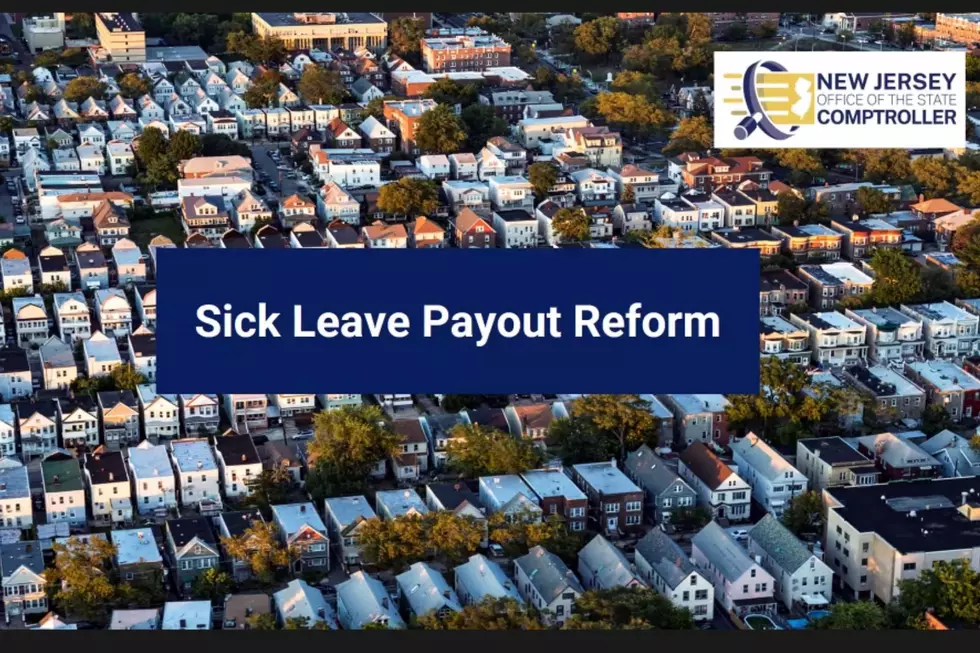
Murphy, lawmakers agree to finally update NJ homestead benefits
TRENTON – Homestead benefits will be updated so they are finally calculated on more recent property tax information, under a state budget agreement announced Monday.
Homestead benefits have long been calculated based on 2006 property tax information, but they will instead be based on 2017 data, the most recent payment information the state says is available. The change will increase the average benefit by $145 for lower-income homeowners and $130 for seniors and disabled homeowners.
Gov. Phil Murphy and Democratic legislative leaders announced Monday they had agreed to “key middle-class tax relief and property tax measures” totaling around $444 million. Around $85 million of that total goes beyond what Murphy had proposed in his budget unveiled in February, mostly for the homestead benefit update.

“With each budget I have introduced, we have provided greater relief to those who need it most – through our continued expansion of the earned income tax credit, the establishment and expansion of a child and dependent tax care credit, increased tax relief for veterans, middle-class tax rebates, and now the long-overdue expansion of the homestead benefit to make sure relief reflects reality,” Murphy said. “I’m proud to join with my partners in the Legislature to make sure that the best state to live in America is more affordable for families.”
The budget will also include tax rebates of up to $500 to family households with incomes up to $150,000, as agreed to last fall when lawmakers approved Murphy’s long-sought increase in taxes on income over $1 million. Those checks will begin going out July 1.
Lawmakers agreed to an item in Murphy’s budget proposal that would expand the state’s child and dependent care credit, enacted in 2018, to make it available to families making up to $150,000. The change would add 80,000 more families and increase the credit for recipients with incomes under $30,000 to $277. The credit would also become refundable – so if the credit is larger than the tax someone owes, they get a refund for the difference.
Murphy and lawmakers also agreed to expand the earned income tax credit, even beyond what the governor proposed in his initial budget plan. Murphy had suggested adding 70,000 seniors without dependents to the program, and now the expansion will also include 20,000 people between ages 18 and 21. The cost for the additional expansion is about $5 million in foregone revenue.
The state will also forego about $15 million in revenue by implementing the expansion of the veterans property tax deduction to include peacetime veterans, as approved by voters last November.
“This is direct tax relief to middle income families and senior citizens who need it most,” said Senate President Steve Sweeney, D-Gloucester.
“Through the promise of greater financial security, together these measures will generate more opportunities for residents and our economy to thrive,” said Assembly Speaker Craig Coughlin, D-Middlesex.
The state is in a position to increase spending at the budget deadline due to a windfall in revenues.
The state’s surplus at the end of the current fiscal year later this month is expected to top $10 billion, fueled by better-than-expected tax collections during the economic recovery and approximately $4.3 billion from emergency borrowing authorized last fall when revenues appeared precarious.
“We have to be responsible in how we spend the unexpected revenue growth, but middle-income tax relief is a top priority,” said Sen. Paul Sarlo, D-Bergen, the Senate budget committee chairman.
“The impact of this relief, particularly under the increase of the Homestead rebate and expansion of the Earned Income Tax Credit, will ensure New Jersey is place where people can thrive and build a life,” said Assemblywoman Eliana Pintor Marin, D-Essex, the Assembly Budget Committee chairwoman.
The 2022 state budget estimates that around 488,000 people will receive homestead benefit credits in the coming year, including 364,000 senior and disabled homeowners with incomes under $150,000 and 124,000 non-senior homeowners with incomes under $75,000.
Income eligibility thresholds were reduced in 2009 and haven’t been adjusted since, pushing more and more people out of the program as their incomes grow with inflation. At the program’s peak in 2007, more than 2.5 million households got benefits, a total that has shrunk by around 80%.
“We’re happy that it changed to the tax year 2017, but the amount of people eligible still remains too few,” said Assemblyman Hal Wirths, R-Sussex.
“When you look at the people who are getting the tax rebates and the money back, we’re really, really appreciative of that. But it’s less than 20% of the taxpayers of the state of New Jersey,” said Assemblywoman Nancy Munoz, R-Union. “We should have broader tax relief.”
“We are happy that there seems to be some tax relief in that the Republicans have been pushing for all along,” Wirths said. “It looks like around $130 million of new tax relief for the citizens of New Jersey, which quite frankly while we’re very grateful is miniscule, according to the governor’s $10 billion surplus. So we think there should be a lot more for the hard-working citizens of New Jersey.”

Sen. Steve Oroho, R-Sussex, said he anticipates “a spending spree of epic proportions for legislative add-ons” to the 2022 budget, which is expected to advance in the Legislature this week. The original budget was around $45 billion, and around 1,500 budget resolutions seeking changes have been proposed.
“Despite the state receiving a $5 billion tax windfall in recent weeks, Democrats are proposing no significant new tax relief for New Jerseyans,” Oroho said.
Trending News Now
More From 92.7 WOBM










